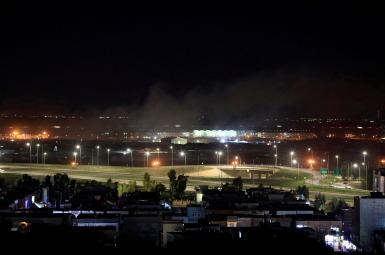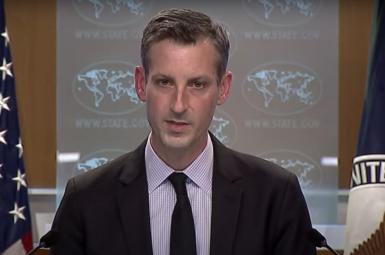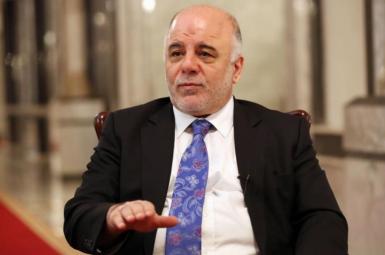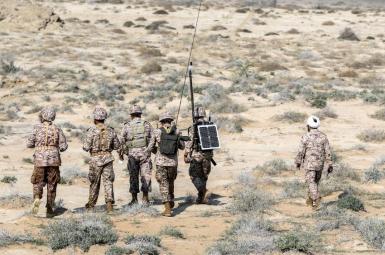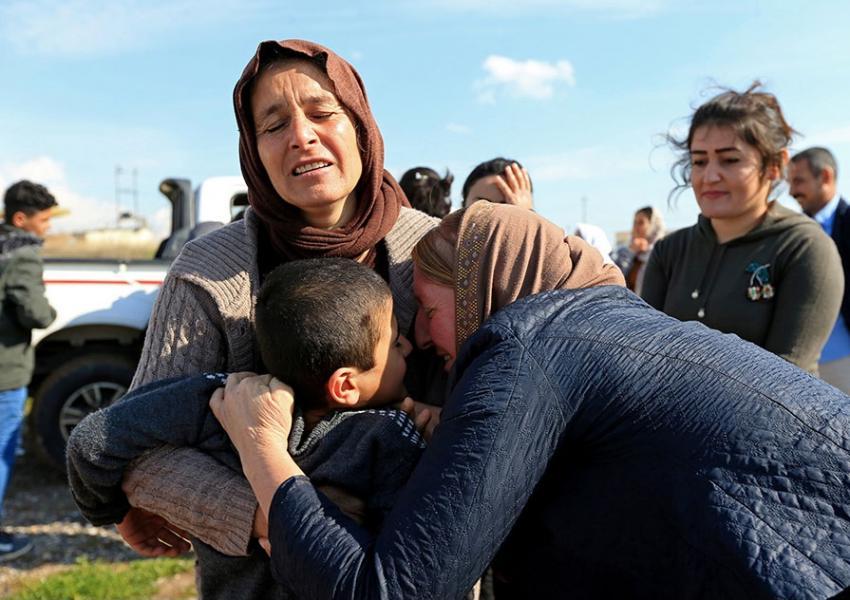
Yazidis’ Illegitimate Children and a Crisis of Identity
Syria and Iraq underwent a disaster five years ago. Islamic State (IS) troops attacked Sinjar, in North-Western Iraq and mass murdered thousands of male members of a religious minority known as Yazidis. There is no trace of 2900 disappeared Yazidis as of yet. IS fighters then kidnapped Yazidi women and children and took them to Syria. Most of these women were raped and abused, then they were sold as slaves and for years were subject to constant sexual abuse.
The End of Islamic State, the Beginning of Another Crisis
Following the defeat of Islamic State, many of these women returned to Iraqi Kurdistan after four years of enslavement. This, in fact, marked the beginning of another disaster, not smaller than the first one. Many of them had gotten pregnant by IS fighters and had children with them. Yazidis are allowed to marry only people of their own community. One cannot convert to Yazidi faith by accepting the truth of the faith. Hence having a child of a non-Yazidi would mean leaving the religious community.
This has caused enormous trouble for Yazidi girls and women who had been raped by IS fighters and were mothers of their children. This poses a twofold challenge for them: on the one hand, the Iraqi law does not recognize their children as Muslims, and on the other hand, this has given their community enough reason to abandon them; ostracized by the state and their community.
The spiritual leader of Yazidis, Baba Sheikh, announced later that he would accept these women into their community and there was a re-joining ceremony for them. Although the mothers were accepted, their children were subject to hatred because of their fathers. Many were forced to choose abortion or leave their children. Most children were accepted in the Yazidi community with the exception of those who were born while their mothers were captives.
Therefore, such children are considered ‘illegitimate’ by both Iraq’s legislation and Yazidi traditions. Some of these children have joined fighter groups and some others still live with their mothers in Al-Hawl refugee camp under the control of the Syrian Democratic forces.
Iraq’s Laws and Religious Fatwa
Based on Iraqi legislation, a child with an unknown identity must be considered Muslim and the Iraqi government does not allow such children to join Yazidis. This fact also burdens the mothers’ shoulders with the choice of either leaving the community or leaving their children so they can be accepted by their group members. The sad reality is that even accepted, they would not be treated like before the war.
Baba Sheikh, the leader of the Yazidi community, has addressed some of these troubles and unpleasant incidents by saying “these victims of war are our sisters and daughters”. He nonetheless insisted that the birth of a child from a non-Yazidi parent is not approved in Yazidi faith and it brings ethnic and social disgrace. According to him, the Yazidi community are eventually going to ask them where their fathers are.
Thorny Dilemma
Trauma is not always caused by a tragic incident, but at times it could be the result of the symbolic recurrence of implications through which a narrative is reinforced by others. This is perhaps the reason that Nadia Murad, the Noble peace prize winner, tries to avoid retelling of those painful moments. So she seldom refers to the destiny of those mothers who decided to keep their children; even though she must have been very familiar with their stories too.
Despite the fact that these women have maintained their faith and interest to their community, they are faced with many challenges on return. One contributing factor is the idea that they failed to keep their chastity.
Many of these women are ashamed of having been raped by armed fighters. Shirin, a Yazidi girl, was below 18 when was enslaved. She was raped in captivity and got pregnant. She knew that her community would not accept her, so she ended her pregnancy at her peril.
Public hatred and ostracization added to the heinous experience of rape caused a disaster for Yazidi women. This hatred was very intense towards the returned pregnant mothers from refugee camps after the defeat of IS. Some of Yazidi women managed to apply for asylum and moved to another country. Jan Kizilhan, a German psychologist, has written a book on this topic. He asserts that some of these Yazidi women rejected their own children because of the Iraqi laws which affirm a person’s religion is their father’s. Germany took in one thousand Yazidi women, but their settlement plan was not properly managed and raised criticism.
These women still suffer from wounds on their body and soul and have not yet been able to start an independent life of their own.

